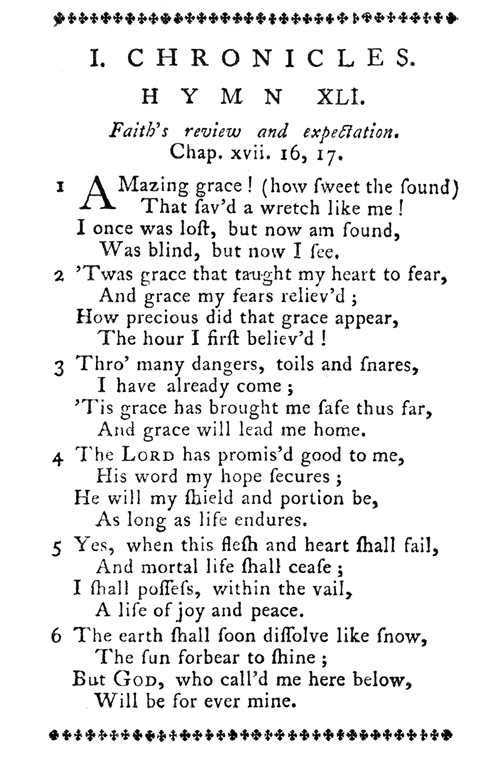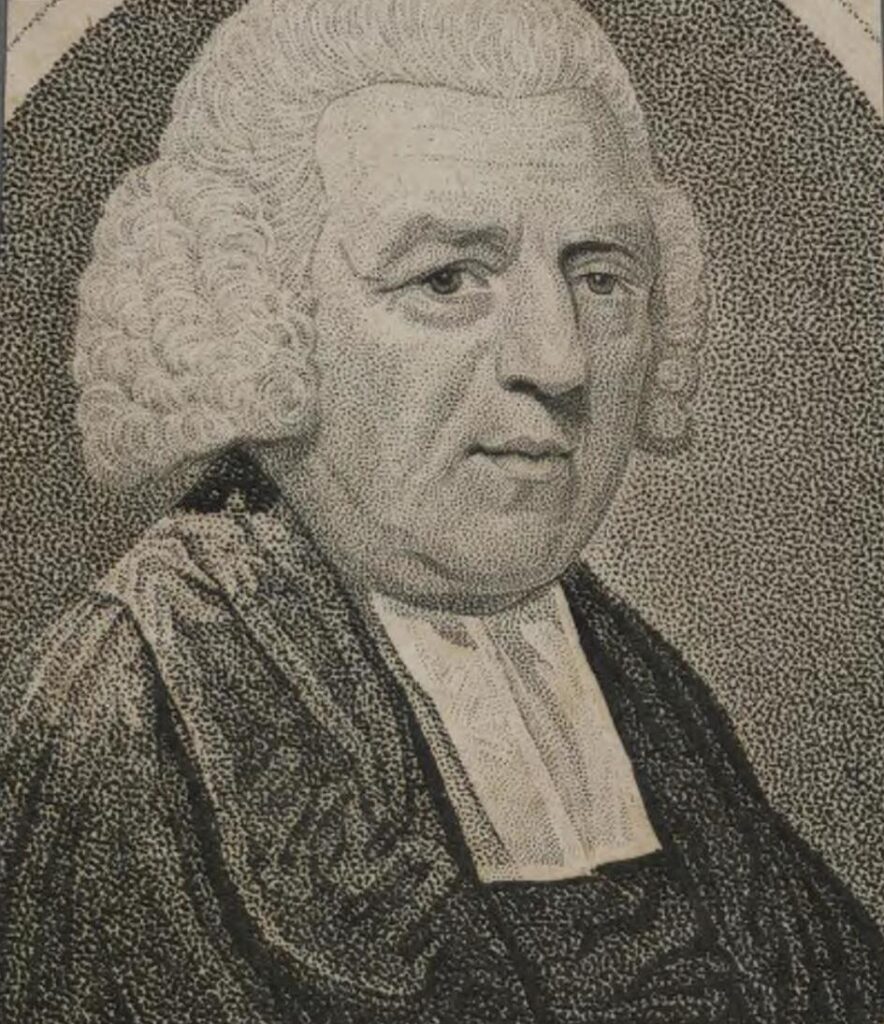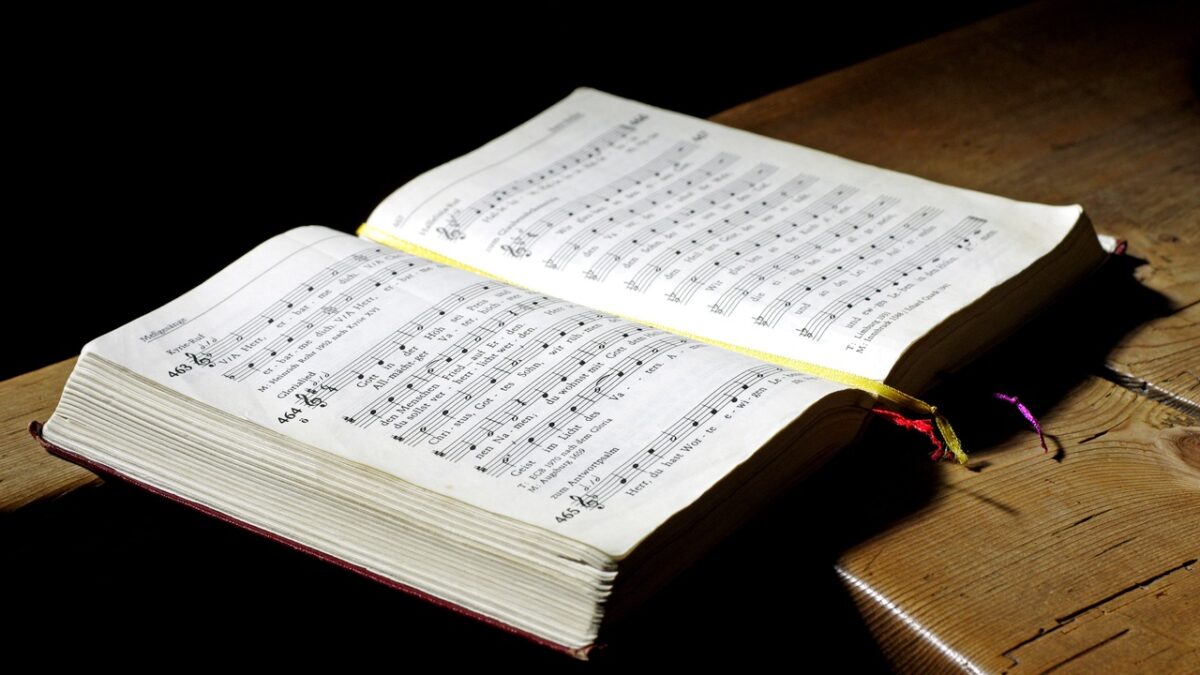The pastor of a large rural congregation was preparing his New Year’s Day sermon, based on the Old Testament text, 1 Chronicles 17:16-17. As he often did, he wrote a hymn to go with his message. Little did he know that his words in that simple hymn would be sung throughout the world for the next 250 years, and become one of the most loved hymns of all times, “Amazing Grace.”
Sunday, Jan. 1, 2023 is the 250th anniversary of this famous hymn written by Rev. John Newton, an Anglican priest and former captain of slave ships, who later in life joined William Wilberforce and worked to abolish slavery in the British Empire.
Newton wrote “Amazing Grace” for his Anglican congregation — St. Peter and Paul Church in Olney Buckinghamshire, England — to sing on New Year’s Day, Jan. 1, 1773. The former wicked seafaring blasphemer, whose life took a dramatic turn when spared from a deadly storm, contemplated with King David, “Who am I, O Lord God…that you have brought me thus far?”
Amazing grace, how sweet the sound.
That saved a wretch like me!
I once was lost but now I’m found,
Was blind, but now I see.
“Amazing Grace” is a hymn of faith in a God whose mercy eclipsed the heathenish, wretched life Newton had lived on the seas. “I can see no reason why the Lord singled me out for mercy…unless it was to show, by one astonishing instance, that with him ‘nothing is impossible’” Newton wrote in his authentic narrative of his life.
‘Twas grace that taught my heart to fear
And grace my fears relieved
How precious did that grace appear
The hour I first believed
“Amazing Grace” has a universal appeal. It has been sung an estimated more than 10 million times and recorded on more than 7,000 albums, according to Newton biographer Jonathan Aitken. It’s been sung by a U.S. president, folk singers, rock and roll stars, and congregations around the world.
During the Covid lockdowns, it was recorded by singers from 50 countries with the message that “the amazing grace and love of Jesus is stronger than life and death itself.” Translated into more than 50 languages, including Inuit, it was even played on the bagpipes by NASA Astronaut Kjell Lindgren at the International Space Station.

“Amazing Grace” was the subject of the 2006 film starring Albert Finney as Newton, and of a 2015 Broadway musical of the same name. Uncle Tom sang it in Harriet Beecher Stowe’s abolitionist book, “Uncle Tom’s Cabin.”
Folk Singer Judy Collins, who said the song has the “power to transform and heal,” recorded a soulful rendition of “Amazing Grace” that spent 67 weeks on pop charts in the United States and the United Kingdom in the 1970s, reaching No. 5.
The hymn is a favorite of Billy Graham crusades. Choirmaster Cliff Barrows said, “We will sing this song until Jesus comes and it may be one of our theme songs in heaven around the throne.”
For a song written by a man who commandeered slave ships from 1745 to 1754, “Amazing Grace” has a strong resonance within the African American church, according to Tesfa Wondemagegnehu, conductor of the Viking Chorus and the Chapel Choir at St. Olaf College. The hymn reinforces ideas of redemption, he said explaining that “Amazing Grace resonated with African-Americans who sought relief from earthly misery and found hope in themes of joyous deliverance.”
President Obama sang it at the memorial service for South Carolina state Sen. Rev. Clementa Pinckney, pastor of Mother Emanuel African Methodist Episcopal Church, who was gunned down with eight church members by a white supremacist during a Bible study on June 17, 2015.

“Amazing Grace” was first published in 1779 in “Olney Hymns”, a hymnal written by Newton and poet William Cowper, with sales used to help the poor of Olney. The hymn was not popular in England, and it appeared with music only three times between 1779 and 1820.
But the hymn soared to popularity in the United States, especially the South, during the Protestant religious revival known as the Second Awakening (from about 1795 to 1835). In 1835, it was finally paired with the tune “New Britain” — the most familiar tune used today — in William Walker’s “Southern Harmony and Musical Companion,” a folk tune that may have originated in Appalachia. The last verse was also added later.
When we’ve been there ten thousand years
Bright, shining as the sun
We’ve no less days to sing God’s praise
Than when we first begun
Newton was born July 24, 1725, the only child of John Newton the Elder, a merchant seafaring captain and his wife Elizabeth, a Christian nonconformist who taught her son to read the Bible and memorize Protestant catechisms, hoping he would one day serve the church. But she died of tuberculosis when he was just six years old, and his home life unraveled as his seafaring father, often gone for two years at a time, remarried and sent him to boarding school, where because of his unrestrained wild behavior he completed only two years of formal education
At age 11, Newton went on his first of six sea voyages with his father, the merchant navy captain. During many years at sea, Newton lost the faith of his youth, leading what he described as a wicked life. “My sinful propensities gathered strength by habit…I sinned with a high hand, and I made it my study to tempt and seduce others,” Newton wrote in his autobiography, “The Authentic Narrative.”
At 18, he was forced into service with the Royal Navy, a regimen he hated. He deserted but was caught and returned to the ship, where he was put in irons and flogged mercilessly. Newton eventually landed with a slave trader named Amos Clow, who owned a plantation on an island off of west Africa. But he was treated cruelly by Clow and his African mistress, where he was half starved and often kept in chains.
When his father discovered where he lived, he arranged for Newton’s passage home on the ship the Greyhound, on which Newton experienced his religious conversion. Caught in a brutal severe storm off the coast of Ireland, the old ship breaking apart and about to capsize, Newton began praying for God’s mercy. He observed the anniversary of that day, March 10, 1748, for the rest of his life.
Through many dangers, toils and snares,
I have already come;
‘Tis grace has brought me safe thus far,
And grace will lead me home
Despite his newly revived faith, Newton initially continued sailing slave ships, a highly profitable yet terribly inhumane business, finally quitting when he became too ill to sail. He began studying for the ministry and was ordained into the Church of England when he was 39.
The Lord has promised good to me,
His word my hope secures;
He will my shield and portion be,
As long as life endures.
While serving his parish in Olney, Newton met William Wilberforce of the English Parliament and encouraged him to pursue his passion of ending the slave trade. In 1787 Newton published “Thoughts upon the African Slave Trade” (1787), which depicted in excruciating detail the horrors of the transatlantic slave trade. He admitted that this was “a confession, which … comes too late … It will always be a subject of humiliating reflection to me, that I was once an active instrument in a business at which my heart now shudders.”
Given to every member of Parliament, Newton’s tract and the work of abolitionists led by Wilburforce led to England abolishing slavery on May 1, 1807. Seven months later, on Dec. 21, 1807, Newton died.
He never forgot his wretchedness as a sinner and God’s amazing grace and forgiveness for those sins. His epitaph, which he wrote, reads in part:
JOHN NEWTON, CLERK,
Once an Infidel and Libertine,
A servant of slaves in Africa ,
Was, by the rich mercy of our Lord and Saviour
JESUS CHRIST,
Preserved, restored, pardoned,
And appointed to preach the FaithHe had long laboured to destroy.









